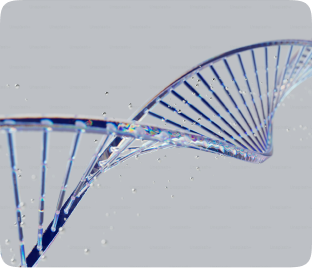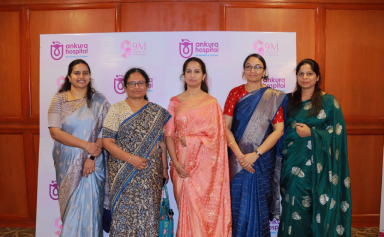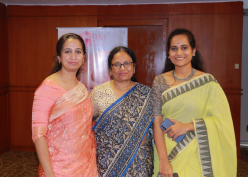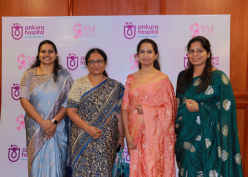.png)
Chief Guest 9M CME
Chapter on Cancer Genetics in in the book Oncofertility-clinical Practice and Implementation Challenges 2025
The chapter demonstrates that hereditary cancer syndromes are a diverse group of genetic disorders associated with significantly increased risk for tumor development due to the presence of germline mutations. It specifically describes genetic basis of cancer susceptibility syndromes, their inheritance, and available reproductive options for couple planning to conceive through prenatal diagnosis or embryo testing. Salient points of genetic counseling and its crucial role in disseminating information to couples and enabling informed decision making regarding reproductive choices are covered. The chapter also touches upon the complexities of genetic inheritance, ethical dilemmas and guidelines of professional bodies on risk detection, fertility preservation and pre-implantation genetic testing.

A study published in the American Journal of Human Genetics investigated the prevalence and impact of nonsense single nucleotide polymorphisms (SNPs) in the human genome. These variants introduce premature stop codons, potentially leading to truncated, nonfunctional proteins. By genotyping 805 nonsense SNPs across 1,151 individuals from 56 populations, researchers identified 169 genes with variable nonsense SNPs, with 99 genes showing inactivation in at least one individual. On average, individuals differed by 24 genes due to these SNPs alone. While most nonsense SNPs are slightly disadvantageous over evolutionary timescales, some may be advantageous, indicated by high population differentiation and frequency.
.png)



